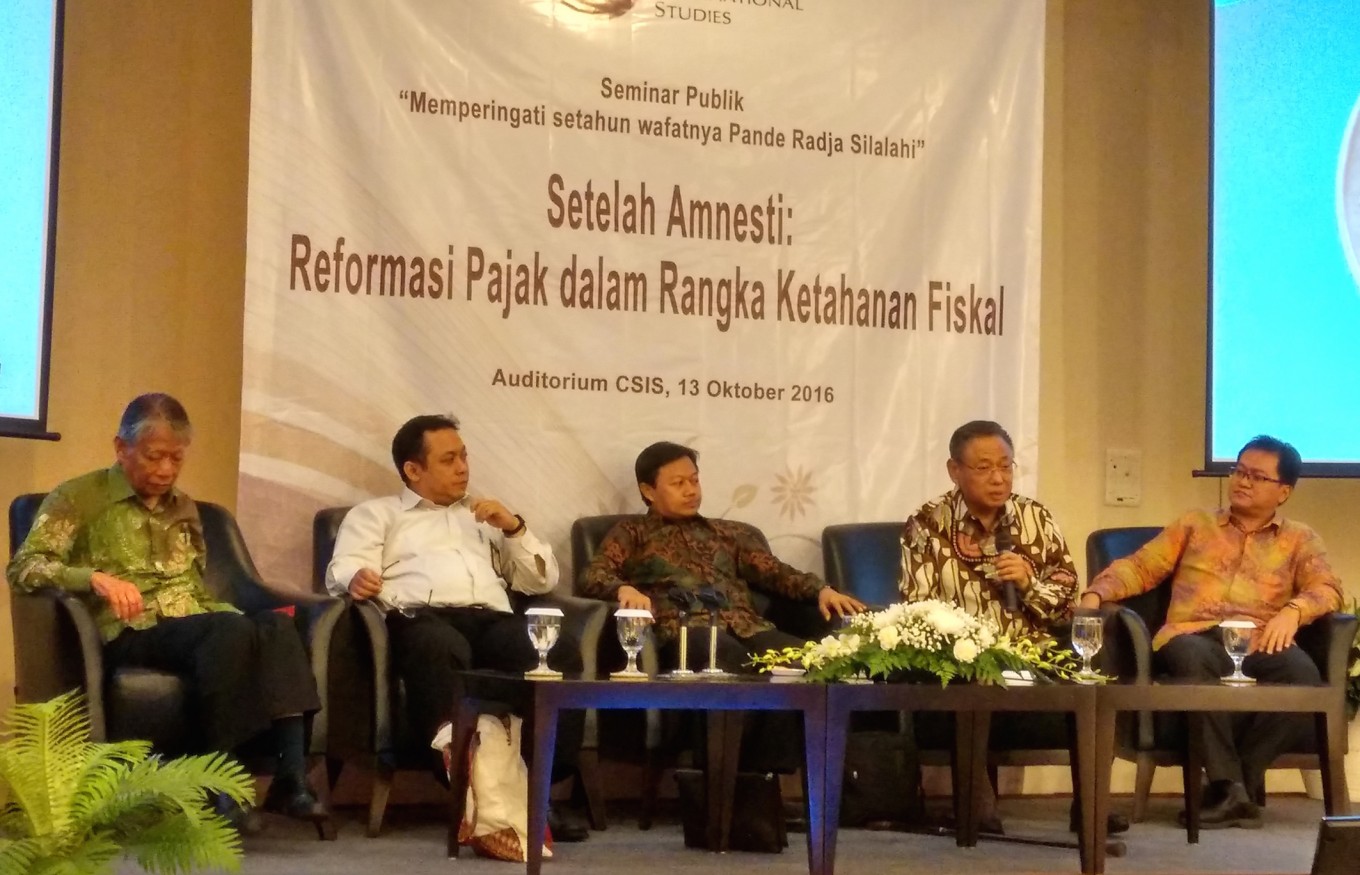Popular Reads
Top Results
Can't find what you're looking for?
View all search resultsPopular Reads
Top Results
Can't find what you're looking for?
View all search resultsTaxpayers lack trust in govt, refuse to take part in tax amnesty
Change text size
Gift Premium Articles
to Anyone
 Tax amnesty: Indonesian Employers Association tax committee chairman Prijohandojo Kristanto (second right) and PricewaterhouseCoopers associate director of tax services Otto Sumaryoto (center) talk about the tax amnesty as a gateway for tax reform in the country. The seminar was organized by the Centre for Strategic and International Studies (CSIS) in memory of prominent economist Pande Radja Silalahi, who passed away last year. (JP/Winny Tan)
Tax amnesty: Indonesian Employers Association tax committee chairman Prijohandojo Kristanto (second right) and PricewaterhouseCoopers associate director of tax services Otto Sumaryoto (center) talk about the tax amnesty as a gateway for tax reform in the country. The seminar was organized by the Centre for Strategic and International Studies (CSIS) in memory of prominent economist Pande Radja Silalahi, who passed away last year. (JP/Winny Tan)
T
he first phase of the tax amnesty has been a huge success regarding tax revenue and asset declarations, but the fact that many potential taxpayers did not participate indicates that public trust in the government is at a low ebb, a business lobby group has said.
The Indonesian Employers Association (Apindo) said on Thursday that of the 50 million taxpayers in Indonesia, only about 422,000 people had joined the tax amnesty in its first round, which officially ended on Sept. 30.
“Where were the remaining 49 million people? It seems like they only acted as spectators,” Apindo tax committee chairman Prijohandojo Kristanto said on Thursday at a seminar organized by the Centre for Strategic and International Studies (CSIS) in memory of prominent economist Pande Radja Silalahi, who passed away a year ago.
Prijohandojo said the tax amnesty program was only the beginning as many actions needed to be taken to instill public trust in the government, such as revamping the Taxation Directorate General’s (DJP) tax information system.
He suggested that the DJP could observe and copy elements of advanced tax systems in other countries and modify them to suit conditions in Indonesia.
Associate director of tax services at PricewaterhouseCoopers, Otto Sumaryoto, said the government needed to give legal certainty to taxpayers.
“There should be a ruling tax system that links the DJP with taxpayers. Currently, the government only provides self-assessment tax returns,” he said. (win/dan)









